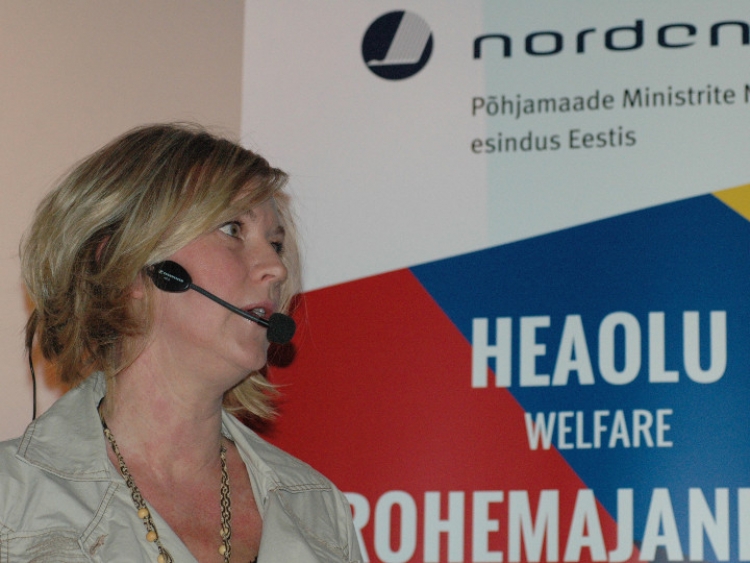So you're basically saying that we should focus on production again?
Yes!
What kind of impact would such a shift in focus have on the environment?
It's a question of footprints. If you produce stuff in one region and can sell most of it within that region, with only some of it crossing borders to different countries, then that leaves less of a footprint. That's assuming you keep your production in check and don't do anything that's bad for the environment, of course.
I think you need to re-think the question of what customers want. Customers in Sweden want something nobody else has. That's different from before: 20 years ago people were collecting things; they wanted sets. It was beautiful tableware from the '50s, that kind of thing – everybody wanted the same thing because that showed you were wealthy after the war. Now it's more about individuality and people wanting stuff that nobody else has. Cool stuff, or personal stuff. If we start from that, then the strategy for making stuff has to be small-scale and targeted at the local region. Some of it will still be interesting to other regions though, because there'll be social, cultural or design connections.
I'm not sure I want to make my business any bigger than it is; maybe a little bit, but not much. If I had time to do more, I'd rather work in other countries: go there, develop products on site, work there as a designer, make something that's adapted to the environment there but still with my own take on it. And leave it there, get paid for what I'm doing but create value that can live longer in the region, not just products but also the experience of working together. Instead of moving products, I'd move myself around. That's a different way of doing it – a more healthy way.
Inspiration lunches
The series of inspiration lunches was launched in 2013 and is organised by the Finnish Institute, Creative Estonia and the Nordic Council of Ministers' Office in Estonia. The next lunch, entitled 'Tested Innovation Model: Creativity + IT', will be held from 12:00-14:00 on 14 April at the Artis cinema.
We will be talking about how IT and creativity have developed various areas and what must be kept in mind when cooperation between different sectors is initiated. Founder of Netprofile and start-up coach Christina Forsgård from Finland, founder of tourism technology company Faralong Kalle Viira from Finland and founder and CEO of Heelosophy Seren Eilmann from Estonia will share their experiences.

